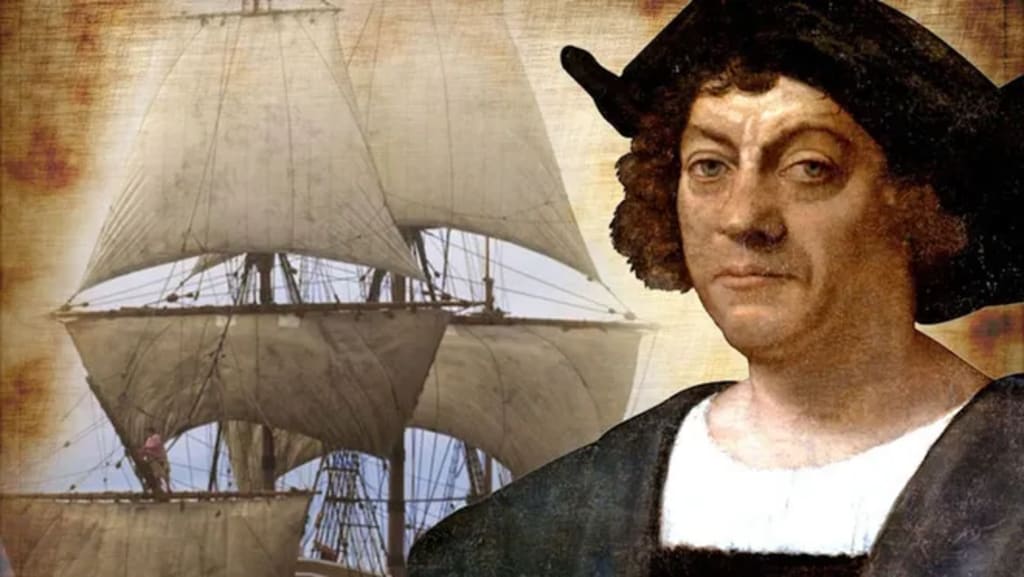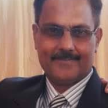Interview with Christopher Columbus: Exploration, Controversy, and Legacy
Exploration, Controversy, and Legacy

Christopher Columbus is a name that is familiar to most people, renowned for his historic voyages that opened up the New World to European exploration and colonization. However, his legacy has been the subject of much debate and controversy in recent years, with some questioning his treatment of Indigenous peoples and the impact of European colonization on their cultures and ways of life. In this interview, we speak with Christopher Columbus himself, to gain insight into his motivations, experiences, and thoughts on his legacy. Join us as we explore the world of Christopher Columbus, from his early days as an explorer to the controversies surrounding his legacy today.
Nadeem: Good day, Christopher Columbus! Thank you for joining us today. Can you tell us a little bit about yourself?
Christopher Columbus: Certainly, thank you for having me. I am a navigator and explorer from Genoa, Italy, and I have been sailing the seas for over 20 years.
Nadeem: You are famous for your discovery of the Americas. What motivated you to embark on that journey?
Christopher Columbus: My main motivation was to find a new route to the East Indies, which would allow for easier and more profitable trade. I believed that by sailing westward, I could reach the East Indies faster and cheaper than by going around Africa.
Nadeem: How did you prepare for your journey to the Americas?
Christopher Columbus: I spent years studying geography, astronomy, and navigation. I also secured funding from the Spanish monarchs, Queen Isabella and King Ferdinand, and assembled a crew of skilled sailors and navigators.
Nadeem: What challenges did you face during your journey?
Christopher Columbus: We faced many challenges, including rough seas, storms, and lack of fresh water and food. We also had to deal with the fear and uncertainty of our crew, who were not used to sailing so far from land.
Nadeem: How did you react when you first spotted land?
Christopher Columbus: It was an incredible feeling of excitement and relief. We had been sailing for weeks, and the sight of land meant that our journey was not in vain.
Nadeem: Your discovery of the Americas had a significant impact on world history. What do you think is your legacy?
Christopher Columbus: I believe that my legacy is one of exploration and discovery. My voyage opened up a new world and paved the way for others to follow. It also had a profound impact on global trade, culture, and politics.
Nadeem: Some people criticize your legacy, arguing that your arrival in the Americas led to the displacement and oppression of Indigenous peoples. How do you respond to those criticisms?
Christopher Columbus: While I understand those criticisms, it's important to remember that the world was a different place in the 15th century. My journey was not intended to harm or exploit anyone, but to open up new opportunities for trade and exploration. I also believe that it's important to acknowledge the contributions of Indigenous peoples to world history and culture.
Nadeem: Thank you for your response. Some people also criticize your treatment of the Indigenous peoples you encountered during your journey. How did you interact with them?
Christopher Columbus: It is true that my interactions with the Indigenous peoples were not always respectful or peaceful. However, it's important to remember that my crew and I were strangers in a new land, and we were not always sure how to communicate with or understand the Indigenous peoples. We also encountered some hostility from them.
Nadeem: What do you think could have been done differently to ensure a more peaceful and respectful interaction with the Indigenous peoples?
Christopher Columbus: Looking back, I believe that it would have been better to approach the Indigenous peoples with more humility and respect. We could have made more of an effort to learn their language and culture, and to understand their way of life. We also could have been more willing to share our resources and technology with them.
Nadeem: You are often credited with the discovery of America, but some argue that you were not the first person to reach the Americas. What is your response to that?
Christopher Columbus: While it is true that there were likely others who had reached the Americas before me, my journey was significant because it opened up a new era of exploration and discovery. It also had a profound impact on world history and paved the way for future exploration and colonization.
Nadeem: What advice do you have for aspiring explorers and adventurers?
Christopher Columbus: My advice would be to always keep an open mind and be willing to take risks. Exploring the unknown can be scary, but it can also lead to great rewards and discoveries. It's also important to be prepared and to have a strong sense of purpose and determination.
Nadeem: That's great advice. Can you tell us about any other notable explorations or adventures that you embarked on?
Christopher Columbus: Certainly. After my first voyage to the Americas, I made three more voyages, exploring various parts of the Caribbean, South America, and Central America. I also sailed along the coast of Africa and explored the Guinea coast.
Nadeem: That's quite an impressive resume. What do you think was the most challenging aspect of your explorations?
Christopher Columbus: I would say that the most challenging aspect was dealing with the unknown and unpredictable. Sailing into uncharted waters and encountering new peoples and cultures was always a challenge, and we had to be constantly adaptable and resourceful.
Nadeem: You are a controversial figure in history. How do you think history will remember you?
Christopher Columbus: That is a difficult question to answer. I hope that history will remember me as an explorer who had a deep curiosity about the world and a strong desire to discover new lands and peoples. I also hope that history will recognize the significant impact that my voyages had on world history and culture.
Nadeem: Thank you for sharing your insights with us, Christopher Columbus. It was a pleasure speaking with you.
Christopher Columbus: Thank you for having me. It was a pleasure speaking with you as well.
Nadeem: One last question, Christopher Columbus. You have been the subject of controversy and debate in recent years, with some calling for the reevaluation of your legacy. What are your thoughts on that?
Christopher Columbus: I understand that my legacy has been the subject of debate and criticism, particularly regarding my treatment of the Indigenous peoples and the impact of European colonization on their cultures and ways of life. While I stand by my desire to explore and discover new lands, I also acknowledge that there were negative consequences to my actions and those of the Europeans who followed me.
Nadeem: That's a very thoughtful response. Do you have any suggestions for how we can learn from the mistakes of the past and move forward?
Christopher Columbus: I believe that it's important to have an honest and open dialogue about the past, including the difficult and uncomfortable aspects. We must acknowledge the harm that was done and work to address the ongoing effects of colonization and oppression. We can also strive to learn from the wisdom and knowledge of Indigenous peoples and incorporate their perspectives into our understanding of the world.
Nadeem: Thank you for your insights, Christopher Columbus. It was a pleasure speaking with you.
Christopher Columbus: Thank you for having me. It was a pleasure speaking with you as well.
Nadeem: Before we wrap up, I have one final question. What message would you like to leave for future generations?
Christopher Columbus: My message to future generations would be to never stop exploring and seeking new knowledge. We live in a vast and complex world, and there is always something new to discover and learn. But we must also remember to approach our explorations with respect and humility, and to be mindful of the impact that our actions may have on others and on the environment.
Nadeem: Thank you for sharing that inspiring message, Christopher Columbus. It was an honor to speak with you.
Christopher Columbus: Thank you for having me. It was a pleasure to speak with you as well.
In conclusion, our interview with Christopher Columbus has shed light on the motivations, challenges, and controversies surrounding one of the most significant figures in world history. While his legacy remains a topic of debate, there is no denying the impact that Columbus had on the world, from the opening up of new trade routes and cultural exchanges to the lasting effects of European colonization on Indigenous peoples. We must continue to have honest and open conversations about the past and work towards a more just and equitable future. Thank you for joining us on this journey through history.
About the Creator
muhammad nadeem naqvi
Naqvi is a renowned writer and journalist from lahore, Pakistan. He has written several critically acclaimed books on social issues and has been recognized with several awards and honors for his work.






Comments
There are no comments for this story
Be the first to respond and start the conversation.